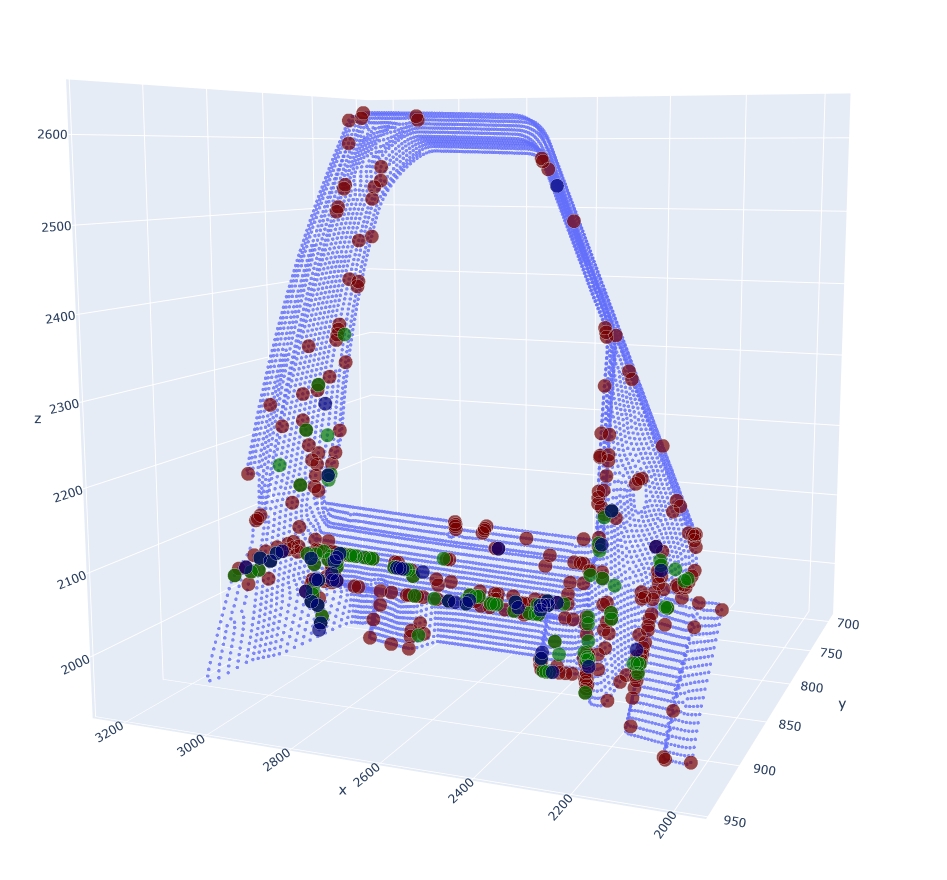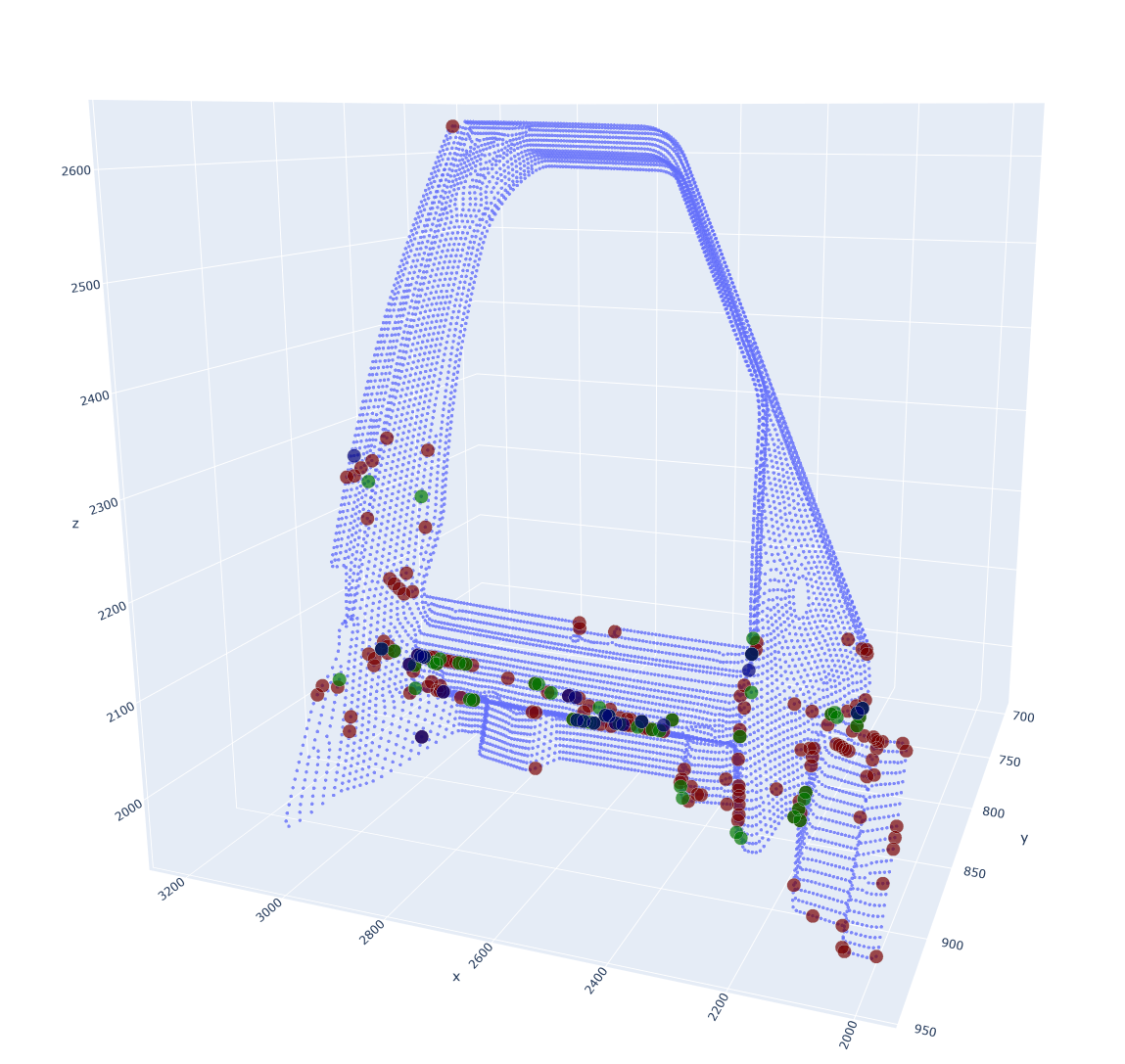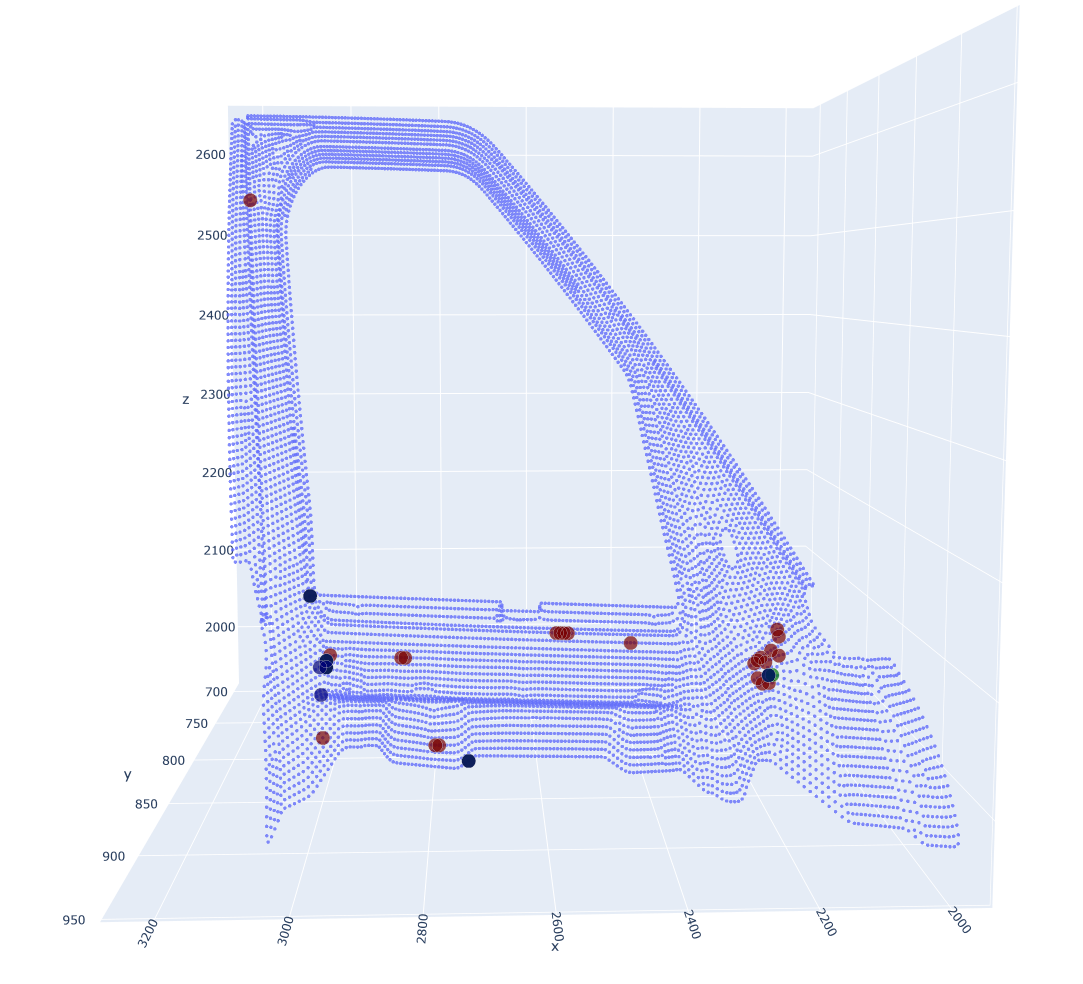Key Measurement Characteristics (KMCs)¶
KMCs are useful is visualizing which areas need to be measured to determine the value of the process parameter. This is useful in terms of determining the optimal sensor layout and in assigning areas a priority when partial measurements needs to be conducted due to system constraints such as cycle time.

Fig 5: KMC for pin hole translation in x-direction¶

Fig 6: KMC for pin hole translation in y-direction¶

Fig 7: KMC for rotation around pin hole¶
Feature importance of ensemble models such as Gradient Boosted Trees or Random Forests is used in determining KMCs for each KCC
-
dlmfg.kmc_gen.kmc_model.kmc_model_build(tree_based_model, point_data, selected_kcc, kcc_name, split_ratio=0.2, save_model=0)[source]¶ kmc_model_build function inputs model_type and data to generate KMC for each KCC
- Parameters
tree_based_model (str (required)) – Type of model to be used for feature importance
point_data (numpy.array (samples*nodes) (required)) – input data consisting of node deviations
selected_kcc (numpy.array (samples*1) (required)) – output data consisting of selected process parameter/KCC
kcc_name (str (required)) – unique identifier for the KCC
split_ratio (float) – test data split
save_model (int) – Save model flag, set to 1 to save model
- Returns
filtered_nodeIDs_x, node ids for which x-deviation is significant given the kcc
- Return type
numpy.array [kmcs*1]
- Returns
filtered_nodeIDs_y, node ids for which y-deviation is significant given the kcc
- Return type
numpy.array [kmcs*1]
- Returns
filtered_nodeIDs_z, node ids for which z-deviation is significant given the kcc
- Return type
numpy.array [kmcs*1]